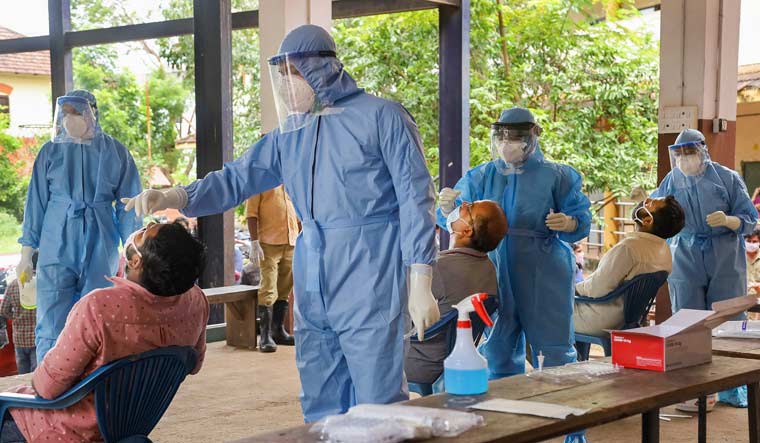
ICMR studying COVID reinfections, identifies three cases
The Indian Council of Medical Research (ICMR), which is studying reinfection among COVID-19 cases, has identified three cases which are being looked into, said Dr Balram Bhargava, Director-General (D-G), ICMR.

The Indian Council of Medical Research (ICMR), which is studying reinfection among COVID-19 cases, has identified three cases which are being looked into, said Dr Balram Bhargava, Director-General (D-G), ICMR.
A recent study in the journal Lancet Infectious Diseases has found that reinfection could occur in COVID-19 patients. The symptoms could be more severe following the relapse.
“The World Health Organisation has documented about two dozen cases of Covid-19 reinfection. We have established telephonic contact with the three cases of reinfection as part of our study. They are being looked into,” Dr Bhargava said.
“We are studying the reinfection cases. So far, three such cases have been reported; two from Mumbai and one from Ahmedabad,” he said.
Related news: COVID-19 cases in India cross 72-lakh mark with 63,509 new infections
There are various cut-off days that are being referred to for reinfection. “Though the public is going by up to 110 days, we are taking 100 as the cut-off period because the antibodies last until then,” said Dr Bhargava.
“They will have no impact on the effectiveness of the COVID-19 vaccine that is under various stages of development in several countries. Major changes, which will have a bearing on the vaccine efficacy, take up to 15 years and are called antigenic shifts,” he said.
“The ICMR has commissioned a study to look into the cases of reinfection. Their results are awaited,” Health Minister Harsh Vardhan had said while responding to queries on social media as part of the fifth episode of his Sunday Samvaad programme.
Dr Bhargava said though SARS-CoV-2, which causes COVID-19, was found to be mutating, the changes were negligible.
“They will have no impact on the effectiveness of the COVID-19 vaccine that is under various stages of development in several countries around the world. Major changes, which will have a bearing on vaccine efficacy, take up to 15 years and are called antigenic shifts. A minor antigenic drift is being reported,” he said.

